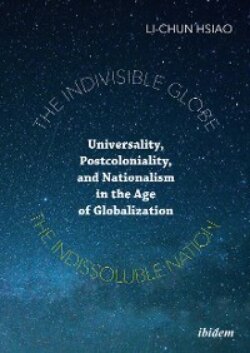Читать книгу The Indivisible Globe, the Indissoluble Nation - Li-Chun Hsiao - Страница 5
Introduction The Postcolonial Problematic
ОглавлениеAs with the precedents of postmodernism and poststructuralism, the expansion, together with the eventual ascent, of postcolonial studies to a paradigmatic status on the contemporary intellectual scene in recent decades doesn’t seem to help clarify many of the fundamental questions about the field. There have been theoretical debates over the parameters, definition(s), methodologies or epistemological grounds, speaking positions, and the locality of postcoloniality: For example, is the postcolonial “post” in the same sense as the postmodern or the poststructuralist? When is (was) the postcolonial, or was there ever such a moment? What is postcoloniality, and how does one conceive of it vis-à-vis postcolonialism (and vice versa)? Who are the postcolonials? Who speaks as/for the postcolonial? Are the ex-colonized and ex-colonizer “postcolonial” in the same sense?1 Like the designation “postcolonial” itself, key notions/terms in the field, such as “hybridity” or “diaspora,” tend to lapse into loosely conceived and exuberantly celebrated buzzwords as they appear more and more frequently in and beyond postcolonial studies.
In this book, I’d like to approach, in the spirit of polemics, the postcolonial “controversies,” or—as I prefer to call them—“problematics” by focusing on two of the multiple and entangled facets of the issues: 1) the spatial dimension concerning the manifestations of these problematics in the postcolonial nation and the variegated inflections of postcolonial nationalism; 2) the temporal dimension entailing the indeterminate, convoluted temporality of postcoloniality, trauma of colonial slavery as the “remainder” of the history of colonialism, and a query of the presumed pastness of colonialism in certain discourses of postcolonialism. Against the backdrop of this “postcolonial problematic,” which might as well be called the point of departure of this book, I’d like to locate another, deeper, and more latent problematic in postcolonial studies—the question of the universal/particular; this latent level of the postcolonial problematic, as well as its manifest instantiations, then, has to intersect, or even be traversed by an “Event” that encompasses these contestations by both illuminating and problematizing them: Toussaint and the Haitian Revolution.2 Let me briefly explicate the centrality of the historical figure of Toussaint—whose emergence itself was an “event” in the history of colonialism—and the Haitian Revolution to this book before we move on to full-length explorations (in Chapter 1) of the universal/particular problematic in postcolonial criticism and theory.
